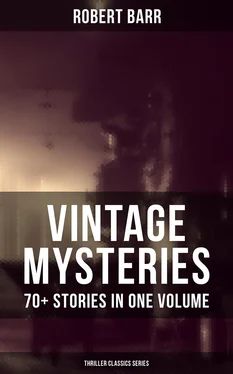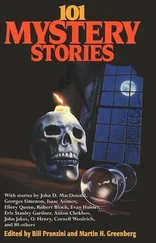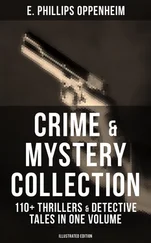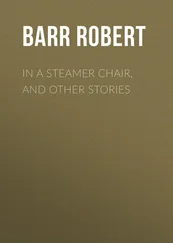"Have a sip with me."
"Not while on duty," replied the officer with a wink.
" Garçon ," said Dupré quietly, "bring me a caraffe of brandy. Fin champagne ."
The garçon placed the little marked decanter on the table with two glasses. Dupré filled them both. The policeman, with a rapid glance over his shoulder, tossed one off, and smacked his lips. Dupré slowly sipped the other while he asked—
"Do you anticipate any trouble here?"
"Not in the least," answered the officer confidently. "Talk, that's all."
"I thought so," said Dupré.
"They had a meeting the other night—a secret meeting;" the policeman smiled a little as he said this. "They talked a good deal. They are going to do wonderful things. A man was detailed to carry out this job."
"And have you arrested him?" questioned Dupré.
"Oh dear, no. We watch him merely. He is the most frightened man in the city to-night. We expect him to come and tell us all about it, but we hope he won't. We know more about it than he does."
"I dare say; still it must have hurt M. Sonne's business a good deal."
"It has killed it for the present. People are such cowards. But the Government will make it all right with him out of the secret fund. He won't lose anything."
"Does he own the whole house, or only the café?"
"The whole house. He lets the upper rooms, but nearly all the tenants have left. Yet I call it the safest place in the city. They are all poltroons, the dynamiters, and they are certain to strike at some place not so well guarded. They are all well known to us, and the moment one is caught prowling about here he will be arrested. They are too cowardly to risk their liberty by coming near this place. It's a different thing from leaving a tin can and fuse in some dark corner when nobody is looking. Any fool can do that."
"Then you think this would be a good time to take a room here? I am looking for one in this neighbourhood," said Dupré.
"You couldn't do better than arrange with M. Sonne. You could make a good bargain with him now, and you would be perfectly safe."
"I am glad that you mentioned it; I will speak to M. Sonne to-night, and see the rooms to-morrow. Have another sip of brandy?"
"No, thank you, I must be getting back to my place. Just tell M. Sonne, if you take a room, that I spoke to you about it."
"I will. Good-night."
Dupré paid his bill and tipped the garçon liberally. The proprietor was glad to hear of any one wanting rooms. It showed the tide was turning, and an appointment was made for next day.
Dupré kept his appointment, and the concierge showed him over the house. The back rooms were too dark, the windows being but a few feet from the opposite wall. The lower front rooms were too noisy. Dupré said that he liked quiet, being a student. A front room on the third floor, however, pleased him, and he took it. He well knew the necessity of being on good terms with the concierge , who would spy on him anyhow, so he paid just a trifle more than requisite to that functionary, but not enough to arouse suspicion. Too much is as bad as too little, a fact that Dupré was well aware of.
He had taken pains to see that his window was directly over the front door of the café, but now that he was alone and the door locked, he scrutinised the position more closely. There was an awning over the front of the café that shut off his view of the pavement and the policeman marching below. That complicated matters. Still he remembered that when the sun went down the awning was rolled up. His first idea when he took the room was to drop the dynamite from the third story window to the pavement below, but the more he thought of that plan the less he liked it. It was the sort of thing any fool could do, as the policeman had said. It would take some thinking over. Besides, dynamite dropped on the pavement would, at most, but blow in the front of the shop, kill the perambulating policeman perhaps, or some innocent passer-by, but it would not hurt old Sonne nor yet the garçon who had made himself so active in arresting Hertzog.
Dupré was a methodical man. He spoke quite truly when he said he was a student. He now turned his student training on the case as if it were a problem in mathematics.
First, the dynamite must be exploded inside the café. Second, the thing must be done so deftly that no suspicion could fall on the perpetrator. Third, revenge was no revenge when it (A) killed the man who fired the mine, or (B) left a trail that would lead to his arrest.
Dupré sat down at his table, thrust his hands in his pockets, stretched out his legs, knit his brows, and set himself to solve the conundrum. He could easily take a handbag filled with explosive material into the café. He was known there, but not as a friend of Hertzog's. He was a customer and a tenant, therefore doubly safe. But he could not leave the bag there, and if he stayed with it his revenge would rebound on himself. He could hand the bag to the waiter saying he would call for it again, but the waiter would naturally wonder why he did not give it to the concierge , and have it sent to his rooms; besides, the garçon was wildly suspicious. The waiter felt his unfortunate position. He dare not leave the Café Vernon, for he now knew that he was a marked man. At the Vernon he had police protection, while if he went anywhere else he would have no more safeguard than any other citizen; so he stayed on at the Vernon, such a course being, he thought, the least of two evils. But he watched every incomer much more sharply than did the policeman.
Dupré also realised that there was another difficulty about the handbag scheme. The dynamite must be set off either by a fuse or by clockwork machinery. A fuse caused smoke, and the moment a man touched a bag containing clockwork his hand felt the thrill of moving machinery. A man who hears for the first time the buzz of the rattlesnake's signal, like the shaking of dry peas in a pod, springs instinctively aside, even though he knows nothing of snakes. How much more, therefore, would a suspicious waiter, whose nerves were all alert for the soft, deadly purr of dynamite mechanism, spoil everything the moment his hand touched the bag? Yes, Dupré reluctantly admitted to himself, the handbag theory was not practical. It led to either self-destruction or prison.
What then was the next thing, as fuse or mechanism were unavailable? There was the bomb that exploded when it struck, and Dupré had himself made several. A man might stand in the middle of the street and shy it in through the open door. But then he might miss the doorway. Also until the hour the café closed the street was as light as day. Then the policeman was all alert for people in the middle of the street. His own safety depended upon it too. How was the man in the street to be dispensed with, yet the result attained? If the Boulevard was not so wide, a person on the opposite side in a front room might fire a dynamite bomb across, as they do from dynamite guns, but then there was—
"By God!" cried Dupré, "I have it!"
He drew in his outstretched legs, went to the window and threw it open, gazing down for a moment at the pavement below. He must measure the distance at night—and late at night too—he said to himself. He bought a ball of cord, as nearly the colour of the front of the building as possible. He left his window open, and after midnight ran the cord out till he estimated that it about reached the top of the café door. He stole quietly down and let himself out, leaving the door unlatched. The door to the apartments was at the extreme edge of the building, while the café doors were in the middle, with large windows on each side. As he came round to the front, his heart almost ceased to beat when a voice from the café door said—
Читать дальше












